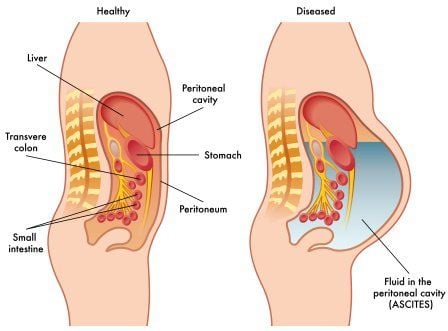This is an automatically translated article.
The article is professionally consulted by Master, Doctor Nguyen Huy Nhat - Department of Medical Examination & Internal Medicine - Vinmec Danang International General Hospital.
Purulent pleurisy is a dangerous disease. If not treated early and actively, the disease can become chronic and lead to serious complications such as leaking pus through the chest wall, exhaustion due to severe infection, sepsis, heart failure,...
1. What is empyema?
The pleura consists of parietal and visceral leaves, between the two leaves is the pleural cavity. Normally, there is a little physiological fluid in the pleural space (about 3ml) to make the pleura work easily, smoothly, and balance the pressure.Empyema is an overflow of pus in the pleural cavity, caused by an inflammatory process with accumulation of pus in the pleural space due to pyogenic bacteria. This can be a pus or a cloudy (or light brown) discharge, containing dead polymorphonuclear leukocytes - the basic component of pus. Empyema often occurs after pneumonia.
Empyema can occur due to the following reasons:
After infectious diseases in different places in the body such as lungs, pleura, chest wall, mediastinum, abdominal cavity,...; After mechanical trauma to the thorax such as thoracic procedures, trauma, chest wounds,...

Viêm mủ màng phổi có thể xảy ra sau chấn thương ngực
The disease is common in immunocompromised people, chronic diseases such as cancer, diabetes, cirrhosis, esophageal disease, disorders of the central nervous system, chronic respiratory failure, alcoholism, ...
2. Symptoms of empyema pleurisy
Empyema can occur suddenly with symptoms of fever, headache, fatigue, ... like a common cold, so patients are easy to ignore and miss the best treatment opportunity. Some common signs of empyema include:2.1 Acute empyema Symptoms in the full-blown stage:
Chest pain, shortness of breath, dry cough, fever, chills,...; Sweating at night; Headache, pale skin, fatigue, rapid weight loss; The syndrome of infection and intoxication manifests itself in a rampant and severe manner; Syndrome 3 hypoechoic (hypoechoic, decreased vibration, percussion) due to pleural effusion.

Người bệnh cảm thấy đau ngực
Chest pain, shortness of breath, fever, dry cough or expectoration of sputum, pus, bad smell if pus leaks into the bronchial cavity; Infectious and toxic syndromes are not as aggressive as the acute phase, but the patient's overall condition is severely depleted; Syndrome 3 hypoechoic (hypoechoic, decreased vibration, percussion) mainly due to thickening of the pleural cavity.

Bệnh viêm mủ màng phổi cần được điều trị tích cực
3. Complications of empyema
Empyema cannot go away on its own if left untreated. With proper and aggressive treatment from the acute stage, empyema can be cured in 2-4 weeks. In case of poor or untreated treatment, empyema will progress to chronic and cause serious complications.Some complications of empyema include:
Post-treatment sequelae: In the case of aspiration empyema or chronic inflammation, it is easy to cause thickening and adhesion of the pleura, affecting the patient's breathing; Local complications: rupture causing pus leakage through the chest wall, pleural - esophageal fistula, pleural - bronchial fistula can cause suffocation and death, rupture of empyema through the diaphragm into the abdomen, causing peritonitis ; Systemic complications: Body exhaustion due to infection, prolonged severe intoxication; sepsis, brain abscess, kidney, right heart failure,...

Tình trạng suy kiệt toàn thân do biến chứng của viêm mủ màng phổi
For detailed advice on empyema, please come directly to Vinmec medical system or book online HERE.
Recommended video:
Periodic health check at Vinmec: Protect yourself before it's too late!
MORE:
Find out information about empyema Signs and causes of pleurisy How is pleurisy diagnosed and treated?














